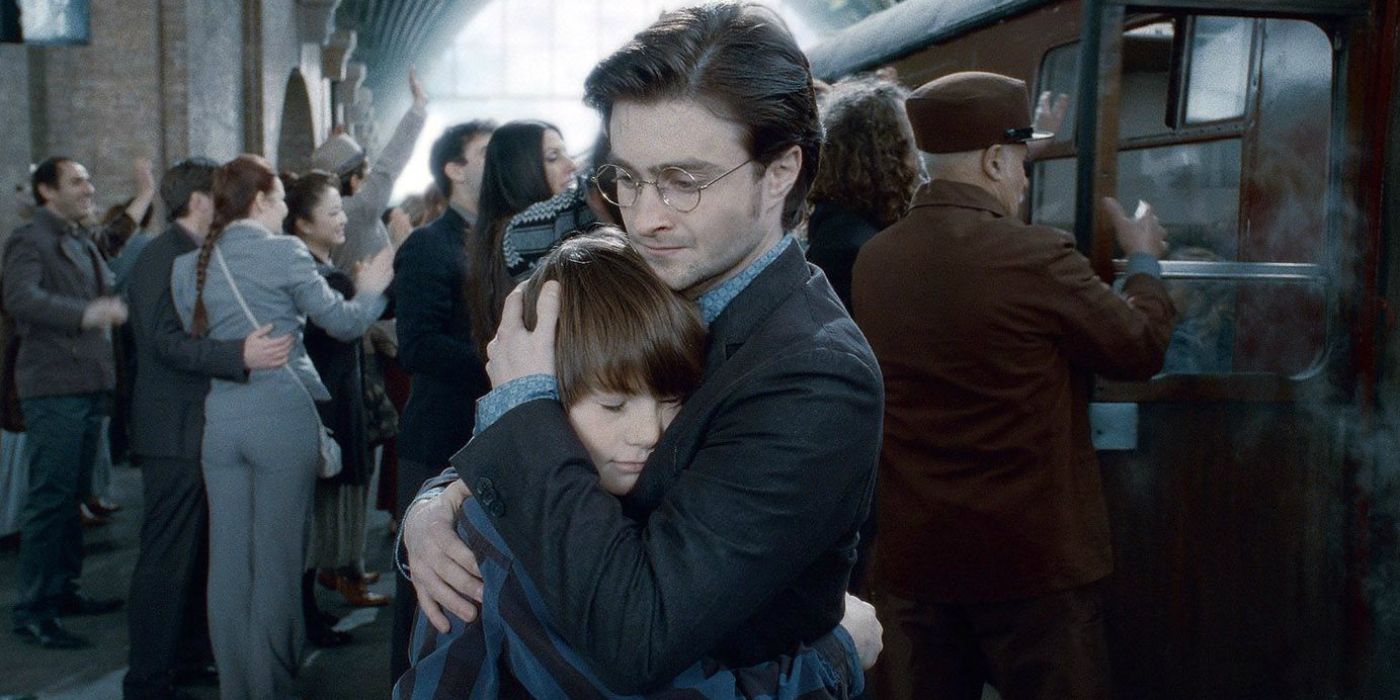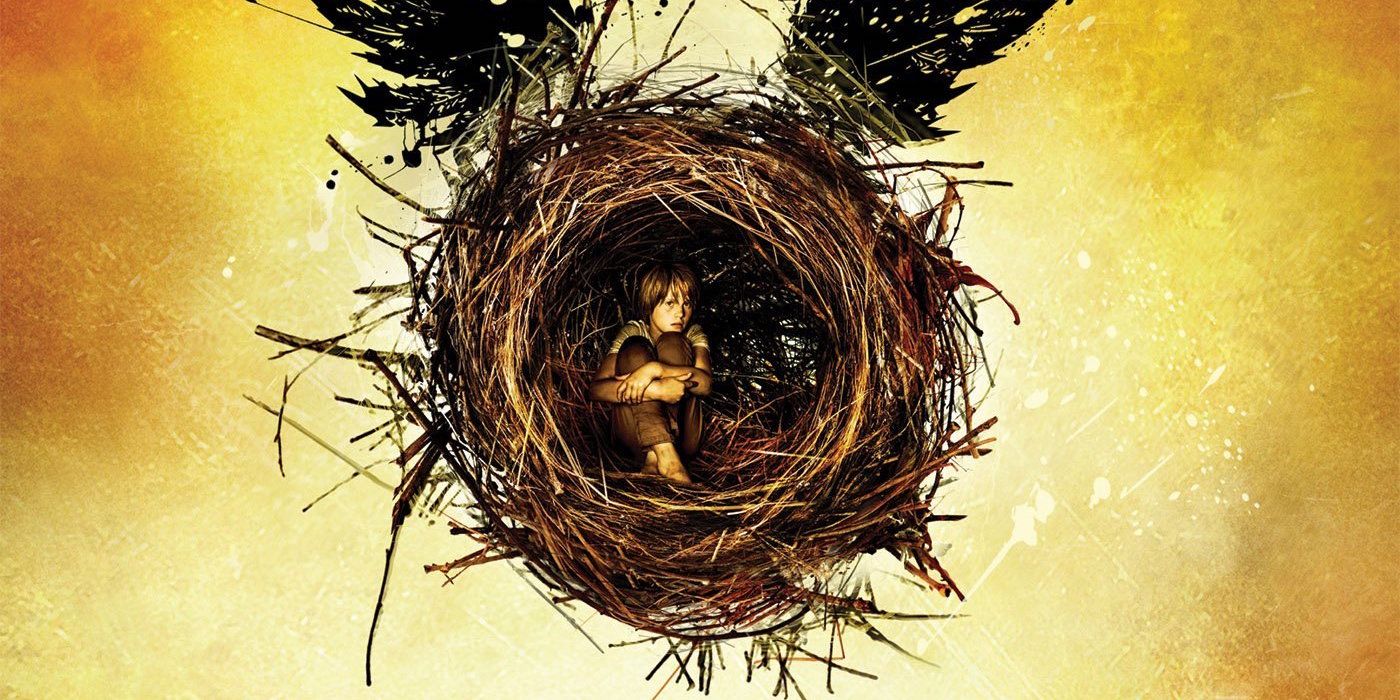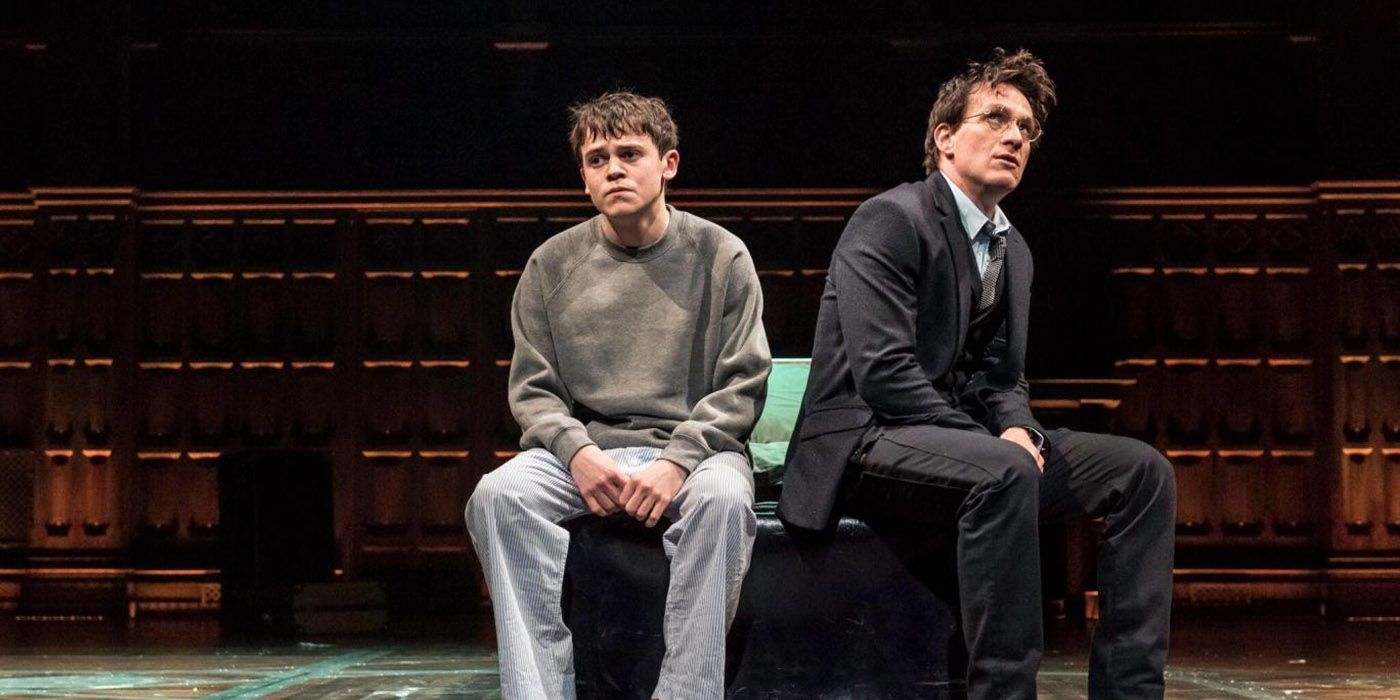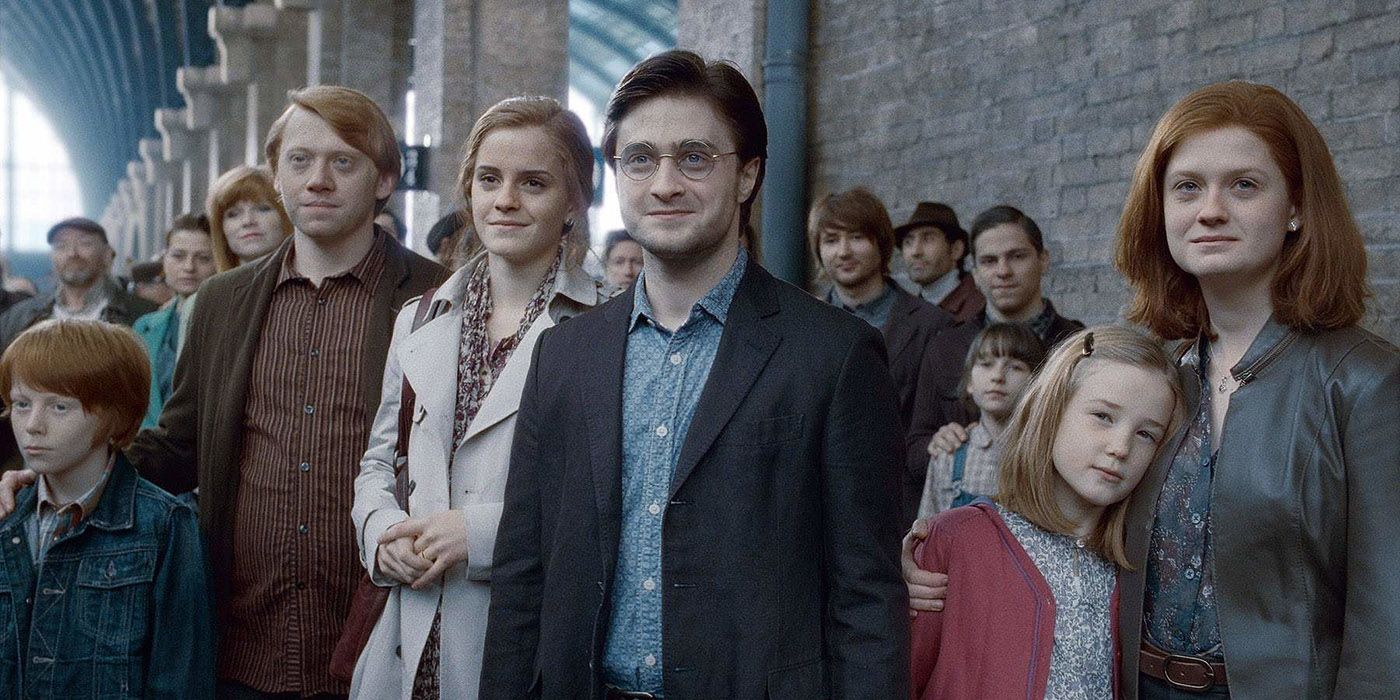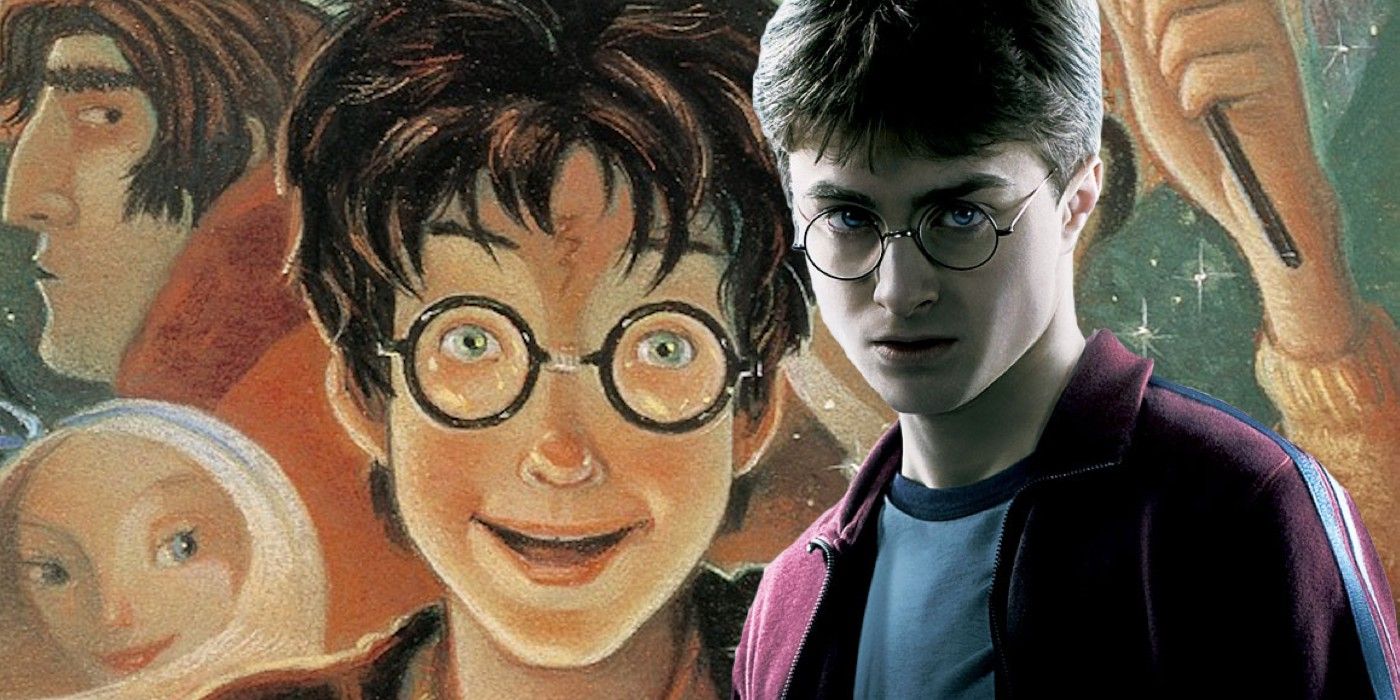If you're at Kings Cross station in London today, keep an eye out for strangely-dressed people milling about between Platforms 9 and 10 - in particular, a middle-aged man in glasses with a lightning scar walking with a very worried looking eleven year old. Yes, today is Albus Severus Potter's first day at Hogwarts. The real-world has finally caught up with Harry Potter's future-set epilogue - it is nineteen years later.Although J.K. Rowling never explicitly stated it in the core text, the Harry Potter books were clearly set in the 1990s. Clues are littered throughout the series - we know from their tombstones that Voldemort killed James and Lily on October 31, 1981, while the new Prime Minister at the start of The Half-Blood Prince is obviously meant to be Tony Blair - putting Voldemort's final defeat in 1998, the year after The Sorcerer's/Philosopher's Stone's first publication and thus future-proofing all her stories. The only time she ever went into the future was the epilogue, which as of September 1, 2017 we've finally passed.But just because "all was well", that doesn't mean there's no more chance of wizarding fun. On this historic day you may be wondering if we'll ever get another Harry Potter film and, well, we're pretty damn certain we will.
What Could An New Harry Potter Film Be?
When she finished The Deathly Hallows, Rowling was pretty adamant that this was the end for Harry and the Wizarding World - and so naturally the same was assumed of the films (hence splitting Part 7 in two for maximum profit wringing). Of course, she's since dramatically and repeatedly gone back on her word - first with a massive expansion of the mythology with Pottermore, then last year with double-tap of cinematic prequel Fantastic Beasts and Where to Find Them (the first in a quintet expanding on author Newt Scamander and Dumbledore's past) and stage sequel The Cursed Child (which told what happened to Albus after leaving on the Hogwarts Express).
The Cursed Child covers the first few years of Albus Severus' time at Hogwarts and has a suitable mix of new adventure and reverence for the original characters; pretty much what a film studio would look for in a legacy-quel. Indeed, doing this was rumored when the play opened, with it alleged Warners wanted to use it as a springboard for a Force Awakens-esque reboot of the series, possibly a trilogy adaptation. While these reports were later denied by both studio and author, it would be naive to think at the very least conversations haven't happened.
Now, there would be some problems in adapting The Cursed Child considering just how tailored to the stage it is. Many fans regard the story it tells - spoiler-lite, Slytherin Albus tries to prove himself by travelling back in time, inadvertently putting his father's existence in danger - as glorified fan-fiction made to be a theater experience rather than proper world expansion, especially when it starts twisting canon for clearly baity reveals in its second half. There's also some pretty essential characters who are played by now deceased actors that would be tricky to recast given how dominant they are in the movie's iconography.
That said, we're not claiming an ninth film would be The Cursed Child, just that it would take influence from and occupy and similar space. Even if it shared a name with the play (a strong synergized branding move), it would be strange to expect Harry Potter 8 (lumping Parts 1 & 2 of Part 7 together) to not make some creative shifts to the current log line. Chiefly, it would surely focus on Daniel Radcliffe, Rupert Grint and Emma Watson more than the stage show did on Jamie Parker, Paul Thornley and Noma Dumezweni in the same roles, meaning the adults would need more narrative autonomy. But that's not an issue considering how the films have always taken liberties with the the source anyway - they were even set in the 2000s, loosely in the years of releases.
The creator has shown explicitly she's willing to continue the Potter story, which nullifies any sense of impossibility, and she's also given us the obvious source for an future movie. Yet, aside from last year's denied report of Warners considering it, all of this is mere speculation, so why is a new film so certain?
Why An New Harry Potter Is Inevitable
Story practicalities aren't the main objection typically raised against another Harry Potter; it's more franchise concerns. The Cursed Child is one of the biggest shows on the West End, and surely Broadway too when it makes the move in 2018 - and the core of its success is it being the only way to see what happened next to Harry (anybody who's bought it will agree reading the script is a poor substitute). To introduce a movie treading the same ground torpedoes that allure.
And it's not like Warner Bros. need help with Potter on screen. Fantastic Beasts has only just started and there's four more movies still to come. Assuming they keep up the biannual release structure, that takes the saga up to 2024. Even with the first film's relatively diminished returns (it made $814 million, less than all but one of the Potter films) that's off to a nice start and will surely begin to fly once the seemingly standalone Newt Scamander story gets entwined with Jude Law's Albus Dumbledore.
But both of those concerns are thinking short-term. If Fantastic Beasts 5 comes out in 2024, then allowing for an artificial starving of wizards to build up anticipation (something Star Wars is also potentially thinking about doing before a fourth trilogy) puts Harry Potter 8 hitting in the late 2020s. By that point, The Cursed Child - making the safe assumption it's still running - will be well into its second decade, meaning a higher proportion of those who want to see it have (especially if it's been subject to cinematic simulcasts or even a home release recording like many of its peers). The exclusivity and blocking arguments will be removed with time.
When we get to 2030 (or near enough), suddenly doing a Cursed Child-esque film is plainly logical. 2028 is œnineteen years later for the movie series' "ending", so importantly you also have the actors at the right age; the trio were in their early twenties when The Deathly Hallows - Part 2 came out in 2011, so would all be in their early-forties by this point - the perfect ages to play the parents of James, Albus, Lily, Hugo and Rose. All three seem eager enough now, and that will only increase with time (besides, if Harrison Ford can come back to play Han Solo, Indiana Jones and Rick Deckard, you can totally get Rupert Grint to leave his ice cream van for a couple of months).
It all slots together perfectly, almost like WB are moving forward with this being the plan. Which is the ultimate reasoning: for the studio - who lest we forget have been struggling to get a new series off the ground ever since Hallows - won't let Harry Potter end.
A seventh Star Wars would never happen. Twin Peaks Season 3 would never happen. Terry Gilliam's The Man Who Killed Don Quixote would never happen. We live in a pop culture landscape where œnever only means œnot right now. If a brand is strong, it will come back. And Harry Potter is one of the strongest brands of the 21st Century, perhaps the only one that has a shot of beating out Star Wars' box office dominance. It's just smart business. When it comes to an new Harry Potter, it's not a question of if - it's a question of when.

